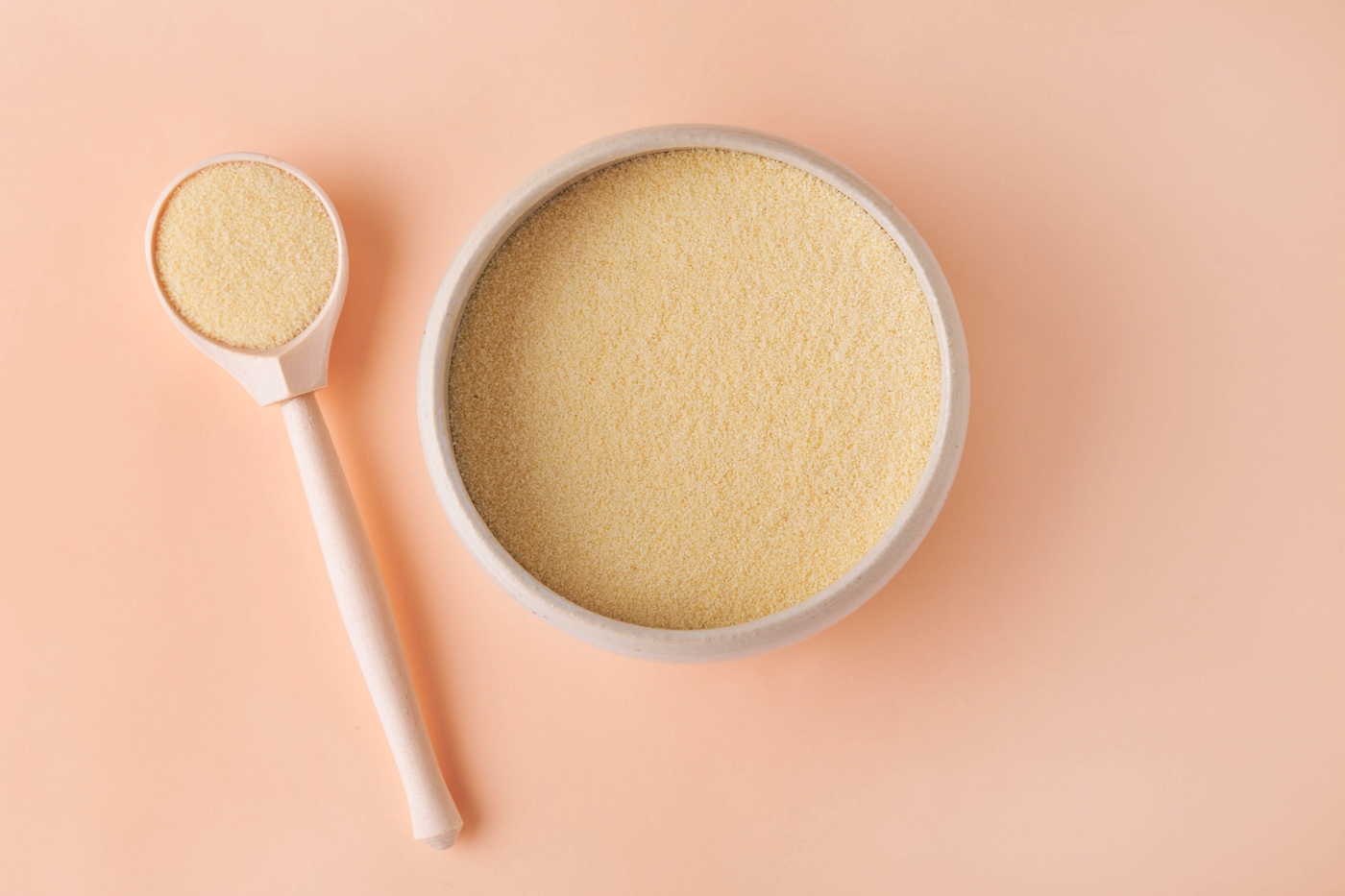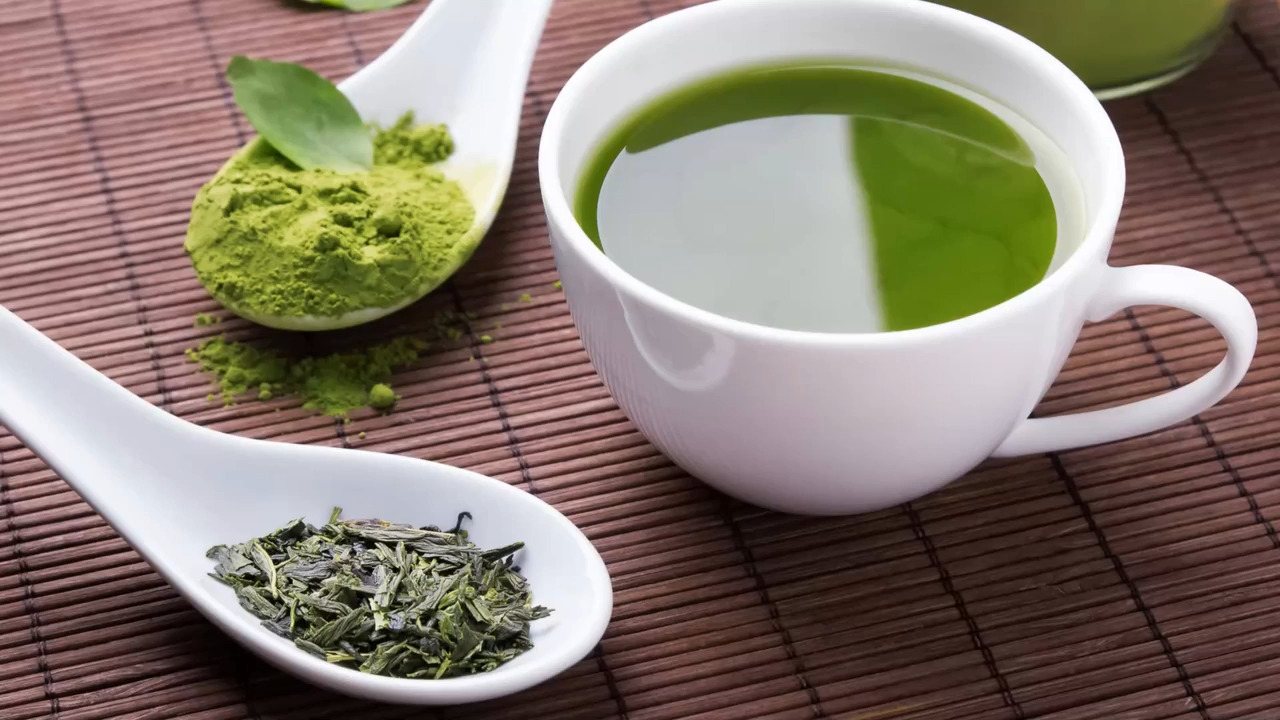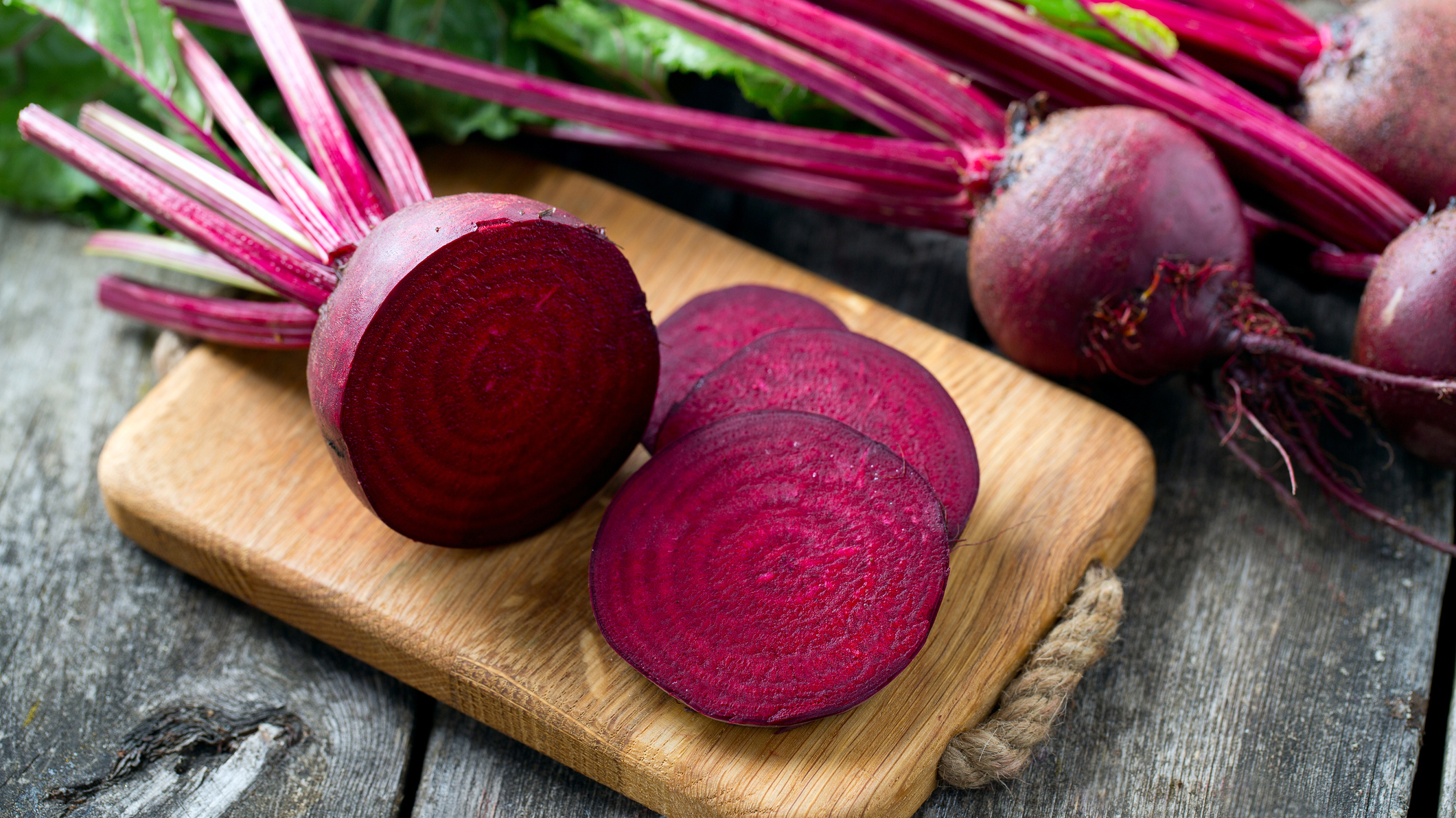

Featured
How To Clean Your Gut Health
Published: August 12, 2023
Learn the effective ways to improve your gut health! Discover featured tips and tricks on how to clean your gut for optimal well-being.
Introduction
Gut health is a crucial aspect of overall well-being that often goes overlooked. Our gut is home to trillions of microorganisms, collectively known as the gut microbiota, that play a vital role in digestion, nutrient absorption, immune function, and even mental health. When our gut flora is out of balance, it can lead to a wide range of health issues, including digestive disorders, weakened immune system, inflammation, mood disorders, and weight gain.
Given the importance of a healthy gut, it is essential to take proactive steps to cleanse and support its optimal function. In this article, we will explore the signs of poor gut health, as well as practical tips and recommendations to help you clean and restore your gut health.
Properly cleansing your gut is not a quick fix or a one-size-fits-all approach. It requires a comprehensive lifestyle overhaul that includes dietary changes, exercise, stress management, and targeted supplementation. By implementing these strategies, you can improve your gut health and overall well-being.
Before we delve into the steps to cleanse your gut, let’s first understand the signs that indicate your gut health may be compromised.
Importance of Gut Health
The gut is often referred to as the “second brain” because of its complex network of nerves and its ability to communicate with the brain. The gut microbiota, consisting of various bacteria, viruses, fungi, and other microorganisms, plays a crucial role in maintaining the health and function of our gastrointestinal system. It helps break down food, extract nutrients, and eliminate waste products.
But the benefits of a healthy gut go beyond digestion. The gut microbiota also has a profound impact on our overall health. It is closely linked to our immune system, with approximately 70% of our immune system residing in our gut. A healthy gut microbiota helps regulate immune responses and protects against the proliferation of harmful pathogens.
Furthermore, the gut microbiota produces essential vitamins, such as vitamin K and certain B vitamins, which are crucial for overall health. It also produces short-chain fatty acids, which promote intestinal health, reduce inflammation, and may even have anti-cancer properties.
The gut-brain axis, a bidirectional communication system between the gut and the brain, is another important aspect of gut health. Research shows that disturbances in the gut microbiota can lead to imbalances in neurotransmitters, such as serotonin, affecting mood, behavior, and mental health. In fact, many mental health issues, such as anxiety and depression, have been linked to an imbalanced gut microbiota.
Moreover, a healthy gut can help maintain a healthy weight. Some studies suggest that certain strains of gut bacteria may influence weight regulation and metabolism. An imbalance in gut bacteria has been associated with obesity and metabolic disorders.
In summary, a healthy gut microbiota is crucial for proper digestion, immune function, nutrient absorption, mental health, and weight management. Taking care of our gut health should be a top priority for overall well-being.
Signs of Poor Gut Health
Our gut health can often be an underlying factor in various health issues. Recognizing the signs of poor gut health can help us take proactive steps to restore balance and improve our overall well-being.
One common sign of an unhealthy gut is digestive problems. This can manifest as frequent bloating, gas, constipation, diarrhea, or irritable bowel syndrome (IBS). Additionally, individuals with gut dysbiosis may experience ongoing digestive discomfort after consuming certain foods.
Poor gut health can also have an impact on our immune system. If you find yourself getting sick frequently or are prone to infections, it may be a sign that your gut health is compromised. The gut microbiota helps regulate the immune response, and an imbalance can weaken our immune defenses.
Another indicator of poor gut health is chronic inflammation. Inflammation in the gut can lead to various health problems, including inflammatory bowel diseases like Crohn’s disease or ulcerative colitis. It can also contribute to systemic inflammation in the body and increase the risk of chronic conditions like cardiovascular disease and autoimmune disorders.
Unexplained weight fluctuations or difficulty losing weight despite a healthy diet and exercise regimen can also be a sign of an imbalanced gut. Certain gut bacteria strains may influence metabolism and weight regulation, and an imbalance may lead to weight gain or resistance to weight loss.
Mental health issues, such as anxiety and depression, can also be linked to poor gut health. The gut-brain axis is a bidirectional communication pathway, and disruptions in the gut microbiota can affect neurotransmitter production, influencing our mood and mental well-being.
Skin conditions like acne, eczema, or psoriasis can also be indicative of gut health issues. Inflammation and an imbalance in the gut microbiota can contribute to skin problems, as the skin is intricately connected to our digestive system.
Food intolerances or sensitivities are another sign of a compromised gut. If you find that certain foods trigger digestive issues or cause discomfort, it could be a hint that your gut health needs attention.
It’s important to note that these signs may be indicative of various health conditions, and it’s essential to consult with a healthcare professional for a proper diagnosis. However, they can serve as valuable clues in identifying potential gut health issues.
Steps to Cleanse Your Gut
Cleansing your gut involves a holistic approach that focuses on rebalancing your gut microbiota, reducing inflammation, and promoting optimal digestion. Here are some steps you can take to cleanse your gut:
1. Remove trigger foods: Start by eliminating foods that may be causing inflammation and irritation to your gut. This typically includes processed foods, refined sugars, gluten, dairy, and artificial additives. Pay attention to how your body reacts when you remove these foods from your diet.
2. Increase fiber intake: Fiber is essential for maintaining a healthy gut. It acts as fuel for beneficial gut bacteria and promotes regular bowel movements. Opt for a variety of high-fiber foods such as fruits, vegetables, whole grains, legumes, and seeds.
3. Support with probiotics: Probiotics are beneficial bacteria that can help restore the balance of your gut microbiota. Incorporate probiotic-rich foods like yogurt, kefir, sauerkraut, kimchi, and kombucha into your diet. You can also consider taking a high-quality probiotic supplement.
4. Stay hydrated: Drinking plenty of water helps maintain optimal digestion and supports the elimination of waste products. Aim for at least 8 cups of water per day and limit your intake of beverages that can irritate your gut, such as alcohol and caffeinated drinks.
5. Practice mindful eating: Slow down and chew your food thoroughly to aid digestion. Mindful eating also helps you recognize when you are full, preventing overeating and reducing the strain on your digestive system.
6. Manage stress: Chronic stress can disrupt the balance of your gut microbiota and impair digestion. Incorporate stress management techniques into your daily routine, such as meditation, deep breathing exercises, yoga, or engaging in activities you enjoy.
7. Exercise regularly: Regular physical activity promotes healthy digestion and helps reduce inflammation in the body. Aim for at least 30 minutes of moderate-intensity exercise most days of the week.
8. Get enough sleep: Lack of sleep can negatively impact your gut health. Aim for 7-8 hours of quality sleep each night to support optimal gut function and overall well-being.
It’s important to remember that cleansing your gut is a gradual process, and it may take time to notice significant improvements. Listen to your body and make adjustments as necessary. Consult with a healthcare professional or a registered dietitian for personalized guidance and support along your gut cleansing journey.
Diet Recommendations for Gut Health
When it comes to cleansing and improving gut health, a key component is maintaining a healthy and supportive diet. The food choices we make can significantly impact the balance of our gut microbiota and promote optimal digestion. Here are some diet recommendations to enhance gut health:
1. Include fiber-rich foods: Consuming an adequate amount of fiber is crucial for a healthy gut. Opt for a variety of fruits, vegetables, whole grains, legumes, and seeds. These fiber-rich foods provide prebiotics, which act as food for beneficial gut bacteria.
2. Focus on fermented foods: Fermented foods are packed with probiotics, which are beneficial bacteria that support gut health. Incorporate foods like yogurt, kefir, sauerkraut, kimchi, and kombucha into your diet. These foods help replenish the gut with good bacteria and promote a balanced microbiota.
3. Choose lean proteins: Include lean sources of protein in your diet, such as poultry, fish, eggs, and legumes. Protein is essential for tissue repair and growth while supporting optimal digestion.
4. Reduce refined sugars and artificial additives: Highly processed foods, sugary snacks, and artificial additives can disrupt the balance of your gut microbiota and contribute to inflammation. Opt for whole, natural foods and limit your consumption of processed and sugary items.
5. Avoid trigger foods: Identify any foods that may be causing discomfort or digestive issues. Common trigger foods include gluten, dairy, processed meats, and spicy foods. Eliminate these foods from your diet, at least temporarily, to see if they alleviate your symptoms.
6. Stay hydrated: Drinking enough water is crucial for maintaining proper digestion and supporting overall gut health. Aim to drink at least 8 cups of water per day and limit your intake of dehydrating beverages like alcohol and caffeinated drinks.
7. Consider an elimination diet: If you suspect certain foods may be causing gut issues, you may consider an elimination diet. This involves removing potential trigger foods for a period of time, then slowly reintroducing them to identify any sensitivities or intolerances.
8. Listen to your body: Pay attention to how your body responds to different foods. Keep a food diary to track any symptoms or reactions you experience after meals. This will help you identify any specific foods that may be triggering gut issues.
It’s important to note that individuals may have different dietary needs and sensitivities. Consult with a healthcare professional or a registered dietitian for personalized recommendations and guidance to optimize your gut health through diet.
Lifestyle Changes for Gut Health
In addition to making dietary modifications, certain lifestyle changes can greatly improve gut health. These changes can help reduce inflammation, support optimal digestion, and enhance the overall balance of the gut microbiota. Incorporate the following lifestyle habits for promoting a healthy gut:
1. Manage stress: Chronic stress can disrupt the balance of your gut microbiota and contribute to digestive issues. Incorporate stress management techniques into your daily routine, such as meditation, deep breathing exercises, yoga, or engaging in activities you enjoy. It’s important to find healthy outlets for stress reduction to support your gut health.
2. Practice proper hygiene: Good hygiene habits can play a role in maintaining a healthy gut. Wash your hands thoroughly before meals and after using the restroom to reduce the risk of ingesting harmful bacteria.
3. Get quality sleep: Lack of sleep can negatively impact gut health. Aim for 7-8 hours of quality sleep each night. Poor sleep can disrupt the balance of the gut microbiota and contribute to digestive problems.
4. Exercise regularly: Regular physical activity supports healthy digestion and reduces inflammation in the body. Aim for at least 30 minutes of moderate-intensity exercise most days of the week. Find activities you enjoy to make exercise a sustainable part of your lifestyle.
5. Avoid smoking and excessive alcohol consumption: Smoking and excessive alcohol intake can negatively affect gut health. Smoking can disrupt the gut microbiota and contribute to inflammation, while alcohol can irritate the digestive tract. Minimize or eliminate these habits for optimal gut health.
6. Stay hydrated: Drinking water throughout the day is crucial for maintaining proper digestion and supporting the elimination of waste products. Aim to drink at least 8 cups of water per day and limit your intake of dehydrating beverages like alcohol and caffeinated drinks.
7. Avoid unnecessary antibiotic use: Antibiotics can disrupt the balance of the gut microbiota. While they are necessary in certain situations, avoid unnecessary antibiotic use to minimize the impact on your gut health. When taking antibiotics, consider probiotic supplementation to help replenish beneficial gut bacteria.
8. Increase exposure to nature: Spending time in nature has been shown to positively impact gut health. Whether it’s going for a hike, gardening, or simply enjoying a picnic outdoors, try to incorporate nature into your routine to support your overall well-being, including your gut health.
Incorporating these lifestyle changes into your daily routine can have a significant impact on your gut health. Remember, consistency is key, and it may take time to see noticeable improvements. Be patient, listen to your body, and seek support from healthcare professionals if needed.
Supplements for Gut Health
While a healthy diet and lifestyle are fundamental for gut health, certain supplements can provide additional support in cleansing and restoring the balance of your gut microbiota. Here are some supplements that have shown potential benefits for gut health:
1. Probiotics: Probiotic supplements contain beneficial live bacteria or yeasts that help restore the balance of your gut microbiota. Look for supplements that contain a variety of bacterial strains, including Lactobacillus and Bifidobacterium. Probiotics can help alleviate digestive issues and support immune function.
2. Prebiotics: Prebiotics are dietary fibers that serve as food for the beneficial bacteria in your gut. By consuming prebiotic supplements, you can nourish the growth of a healthy gut microbiota. Look for supplements that include ingredients like inulin, fructooligosaccharides, or galactooligosaccharides.
3. Digestive Enzymes: Digestive enzyme supplements can aid in the breakdown and absorption of nutrients, supporting optimal digestion. They can be especially beneficial for individuals with digestive disorders or those experiencing difficulty digesting certain foods.
4. Fish Oil: Fish oil supplements provide omega-3 fatty acids, which have been shown to have anti-inflammatory properties. By reducing inflammation in the gut, fish oil can support gut health and promote overall well-being.
5. Glutamine: Glutamine is an amino acid that plays a crucial role in gut health. It helps maintain the integrity of the intestinal lining and supports the growth and repair of gut tissues. Glutamine supplements can be beneficial for individuals with leaky gut syndrome or intestinal inflammation.
6. Curcumin: Curcumin, the active compound in turmeric, is known for its anti-inflammatory properties. It can help reduce gut inflammation and support gut healing. Look for curcumin supplements that also include black pepper extract (piperine) to enhance absorption.
7. Aloe Vera: Aloe vera supplements have been used for their potential digestive benefits. Aloe vera contains compounds that can soothe and heal the gut lining. It may be beneficial for individuals with digestive disorders or those experiencing gut inflammation.
It’s important to note that while these supplements show promise for gut health, individual responses may vary. It’s always best to consult with a healthcare professional or a registered dietitian before starting any new supplements. They can assess your specific needs, evaluate potential interactions with medications, and recommend appropriate doses for optimal gut health support. Supplements should always be used as a complement to a healthy diet and lifestyle, not as a replacement.
Exercise for Gut Health
Regular exercise is not only beneficial for cardiovascular health and weight management but also plays a role in maintaining a healthy gut. Physical activity can impact gut health in several ways, including promoting optimal digestion and reducing inflammation. Here’s how exercise can positively influence your gut health:
1. Improved digestion: Exercise helps stimulate the muscles of the digestive tract, promoting regular bowel movements and preventing constipation. It can also increase blood flow to the intestines, enhancing nutrient absorption and waste elimination.
2. Reduced inflammation: Inflammation in the gut can contribute to various digestive disorders and negatively impact gut health. Regular exercise has been shown to reduce systemic inflammation in the body, including in the gut. By reducing inflammation, exercise can help promote a healthy gut environment.
3. Enhanced gut motility: Physical activity stimulates the contraction of the muscles in the gastrointestinal tract, aiding in the movement of food through the digestive system. This can help prevent sluggish digestion and promote overall gut motility.
4. Stress reduction: Exercise has long been recognized as a powerful stress reducer. It stimulates the release of endorphins, which help improve mood and reduce stress levels. Chronic stress can disrupt the balance of the gut microbiota and impair digestion, so managing stress through exercise can indirectly support gut health.
5. Weight management: Regular exercise can help maintain a healthy weight or support weight loss efforts. Excess weight, particularly around the abdomen, is associated with increased inflammation and an imbalance in the gut microbiota. By managing weight through exercise, you can support a healthy gut environment.
6. Enhanced immune function: Exercise has immune-boosting benefits that can indirectly support gut health. Regular physical activity has been shown to improve immune function and reduce the risk of infections or immune-related gut disorders.
To incorporate exercise for optimal gut health, aim for a combination of cardiovascular exercises, strength training, and flexibility exercises. Find activities that you enjoy, such as walking, jogging, cycling, swimming, or yoga, and make it a regular part of your routine. Aim for at least 30 minutes of moderate-intensity exercise most days of the week.
Remember to listen to your body and choose activities that are appropriate for your fitness level. If you have any medical conditions or concerns, consult with a healthcare professional before starting a new exercise program.
By staying active and incorporating regular exercise into your lifestyle, you can support gut health, improve digestion, and enhance overall well-being.
Stress Management for Gut Health
Managing stress is not only essential for our mental and emotional well-being but also plays a vital role in maintaining a healthy gut. Chronic stress can disrupt the balance of our gut microbiota, impair digestion, and contribute to various gastrointestinal issues. By adopting effective stress management techniques, we can support our gut health and overall well-being. Here are some strategies to help manage stress for optimal gut health:
1. Practice mindfulness meditation: Mindfulness meditation is a powerful technique that can help reduce stress and promote a sense of calm. Set aside a few minutes each day to focus on your breath, observe your thoughts without judgment, and bring your attention to the present moment. This practice can help relieve stress and its negative impact on gut health.
2. Engage in regular exercise: Exercise is not only beneficial for physical health but also for stress reduction. Engaging in regular physical activity, such as walking, jogging, yoga, or dancing, can help release endorphins, the “feel-good” hormones that improve mood and reduce stress levels. Find an exercise routine that you enjoy and make it a regular part of your lifestyle.
3. Prioritize self-care: Take time each day to engage in activities that bring you joy and help you relax. This could include reading a book, taking a warm bath, spending time in nature, or practicing a hobby. Prioritizing self-care activities can help reduce stress levels and promote a healthy gut environment.
4. Incorporate relaxation techniques: Incorporate relaxation techniques into your daily routine to counteract the effects of stress on your gut. Deep breathing exercises, progressive muscle relaxation, or guided imagery can help activate the body’s relaxation response, reducing stress hormones and promoting gut health.
5. Establish a sleep routine: Getting enough quality sleep is crucial for stress management and gut health. Establish a consistent sleep routine by going to bed and waking up at the same time each day, creating a relaxing sleep environment, and avoiding stimulating activities before bedtime. Aim for 7-8 hours of uninterrupted sleep each night.
6. Connect with others: Social support plays a significant role in stress management. Reach out to friends, family, or support groups to share your feelings and experiences. Connecting with others can provide emotional support and help alleviate stress.
7. Practice time management: Poor time management can contribute to stress and increase feelings of overwhelm. Prioritize tasks, set realistic goals, and break them down into manageable steps. Establish boundaries, learn to say no when necessary, and delegate tasks when possible. Effective time management can help reduce stress and support gut health.
8. Seek professional help if needed: If you find that stress is significantly impacting your daily life and gut health, consider seeking professional help. A therapist, counselor, or healthcare professional can provide guidance, support, and additional stress management techniques tailored to your specific needs.
By incorporating stress management techniques into your daily routine, you can significantly improve your gut health. Remember, stress reduction takes practice and patience. Find what works best for you, be consistent, and prioritize self-care to support your overall well-being.
Conclusion
Your gut health plays a vital role in your overall well-being, impacting digestion, immune function, mental health, and more. Cleansing and supporting your gut health involves a comprehensive approach that includes dietary changes, lifestyle modifications, and targeted supplementation. By following the steps outlined in this article, you can optimize your gut health and enhance your overall quality of life.
Start by recognizing the signs of poor gut health, such as digestive issues, weakened immune system, chronic inflammation, and mental health disturbances. Then, implement the recommended strategies to cleanse and restore your gut health.
Make dietary changes by including fiber-rich foods, fermented foods, lean proteins, and avoiding trigger foods. Stay hydrated, practice mindful eating, and consider an elimination diet if needed.
Support your gut health through lifestyle changes such as stress management, regular exercise, proper hygiene, and adequate sleep. Avoid smoking and excessive alcohol consumption.
Consider incorporating supplements such as probiotics, prebiotics, digestive enzymes, fish oil, glutamine, curcumin, and aloe vera to provide additional support to your gut.
Lastly, remember that gut health is a journey, and it takes time and consistency to see significant improvements. Listen to your body, be patient, and consult with healthcare professionals or registered dietitians for personalized advice and guidance.
By prioritizing and nurturing your gut health, you can enjoy better digestion, enhanced immune function, improved mental well-being, and overall better health and vitality. Take the necessary steps today to cleanse and support your gut for a healthier, happier you.









